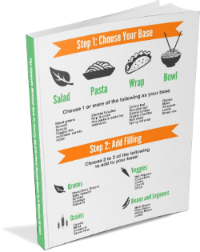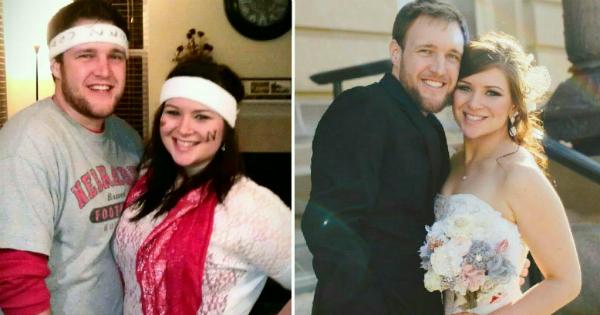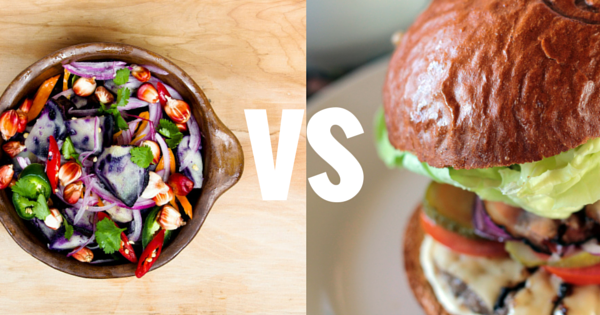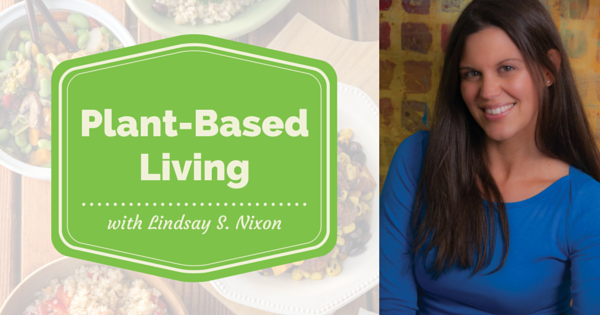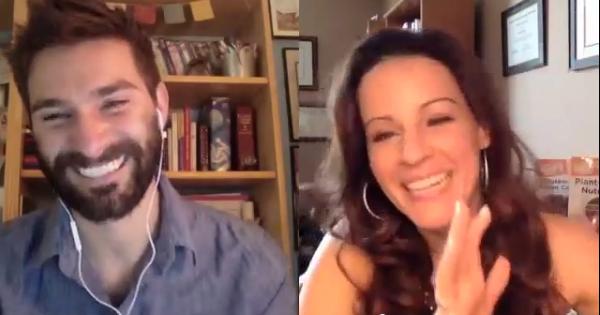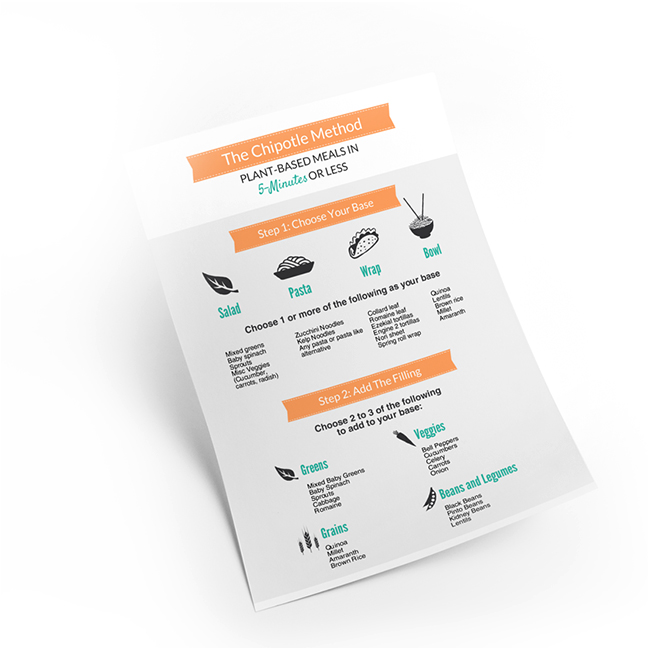
When I first changed my diet, I was SO naive.
I’d never made a concerted effort to lose weight or get healthy before. I would occasionally lift weights, but I certainly wasn’t that into fitness.
So I hadn’t read the books, perused the articles or had any idea of the Pandora’s box of dietary theories that awaited me.
My sole source of nutritional information was a handful of resources that my yoga teacher had sent me on the benefit of raw foods. (Thanks Sujita!)
And reading through those early books on raw food, I thought that I was learning “THE WAY” to health, happiness, longevity and long flowing hair (ok not the hair one).
It wasn’t until a couple months later that I headed on down to my library and checked out Rainbow Green Live Food Cuisine by Dr. Gabriel Cousens.
And alas the edifice of my previously unadulterated nutritional paradigm began to crumble.
You see Dr. Cousens recommended avoiding mushrooms, while all the raw food resources that I had read previously gave mushrooms a big thumbs up.
HOW COULD THIS BE?! WHO WAS I TO BELIEVE????!!!!
And so I was exposed to the cold hard reality of the nutrition world. Everybody, absolutely everybody, has an opinion on the right way. And they couldn’t be more conflicting.
These days, I can’t turn a corner these days without encountering extreme examples of conflicting health advice.
Maybe I’m more tuned in than I was previously, but I feel like the nutritional confusion has reached a fever pitch.
There is controversy about juicing, smoothies, raw food, coconut oil, oils in general, algaes, alternative sweeteners, saturated fat, potatoes, starch, protein, fat, carbohydrates, the correct ph of water, omega 3’s vs omega 6’s, cruciferous veggies, wine, coffee, chocolate and on and on and on and on and on.
Here is one particularly telling example:

Hmm, interesting. How about a slightly different opinion?

My aim here is not to share my individual opinion about who is right, but to point out how conflicting these messages are.
We have two diametrically opposed examples from from supposedly credible sources — an M.D. and The Washington Post.
So how are we supposed to make any progress towards radiant health and our goal weight when we can’t even figure out which foot to put forward?
Who do we trust? How do we know what works?
What if we invest a ton of time, energy, willpower and money into something that ends up being snake oil?
What if we spend years turning down bacon that we REALLY want to eat and it turns out that the paleo folks were right?!
Oh the horror!
What if your needling husband who thinks you are crazy for eating only veggies ends up healthier than you because you ended up following the wrong plan??!
Yes, there is a lot at stake.
And the sad fact of all this controversy is that it prevents us from making progress.
It makes us waver, it makes us question what we are doing, and it makes it a lot more likely that we’ll just say ah screw it and go tuck into a delicious dinner of pringles topped with ez cheese.
You might be hoping that I’m about to lay down the holy grail of nutritional truth — tell you who is right and who is wrong.
And though that would oh so much fun, it just ain’t quite that easy folks. (Especially since I’m neither a doctor nor a nutritionist.)
Instead, I can share with you some principles that I use to navigate the jungle of information, and give you a framework that can help you make it through unscathed.
The biggest lesson that I can impart is that this is a journey of self-discovery.
You have to learn how to think for yourself, sort good science from bad, and become your own one-person science experiment.
At the end of the day, you have to be the CEO of your health.
So let’s dive in!
Principle 1: Focus On The Big Wins
In today’s landscape of sensationalist articles and opposing viewpoints, it’s so easy to lose the forest for the trees.
One of the biggest mistakes that I made as a beginner was spending so much time worrying about minutiae and controversies that I lost track of the big picture.
- Is cacao a super food or does it burn out the adrenals?
- Do I need to be soaking and sprouting my nuts?
- Is it worth the extra cost of buying organic almond butter versus non-organic almond butter?
- Is soy good or bad for me?
- Is making smoothies better than juicing or should I be avoiding both?
After six years exploring these issues, I’d guess that worrying about these details and trying to do the right thing had almost zero impact on my health.
In fact, the stress of trying to figure them out probably ended up having a greater negative impact than any physical health benefit that I would have gained from getting these details just right.
That’s right, I think I would’ve been better off just ignoring all the controversy altogether!
In Michael Pollan’s New York Times bestseller In Defense Of Food, he boils all the conflicting nutritional advice into just seven words: Eat food. Not too much. Mostly plants.

It doesn’t get any simpler than this.
Now this is a tough question, because again, I’m not a doctor or a nutritionist.
At some point all these small choices do make a difference. If you are following a perfect plant-based diet and are still unable to lose weight, or if you have a chronic health condition that refuses to improve, the devil just may be in the details.
Maybe worrying about oxalates in greens and lectins in beans is important. And at some point you do have to put in your due diligence, do your research, and look at the objective measurements that we have available to us to make sure that we are on track.
More on this later on.
But my hunch is that for the majority of us, especially those in the beginning stages of moving on from the Standard American Diet, the bigger problem is worrying too much about the details.
For example, in Julieanna Hever’s book The Vegiterranean Diet, she suggests that the Mediterranean Diet has been shown to be effective in spite of the emphasis on fish, olive oil and red wine. Not because of it.
In my quest to understand which diet is best, I’ve seen amazing success stories with raw food, plant-based (no oil), plant-based (with oil), high-carb and low-fat, low-fat and high-carb.
And when I look at the common denominators of all these success stories, I see the same three things:
- A focus on whole (minimally processed) foods
- A focus on plant-based foods (80-100%)
- A focus on leafy greens and vegetables
Done.
My (completely unscientific) hypothesis is that just focusing on whole plant foods is the big win that will get you at least 80-90% where you want to go.
I doubt a single medical professional would disagree on that general outline. Eat less processed foods. Eat more greens and vegetables.
All the controversy lies in the details.
Note: Please do not take this as a substitute for medical advice. See your doctor before changing your diet.
Principle 2: The best program is the one that you will follow.
As I mentioned above, focusing on the “big wins” and ignoring the small controversies is the way to drastically simplify your life, and thus radically improve your chances of success.
In this case, just focusing on eating real foods that are plant-based is the big win that will get you 80 – 90% where you want to go.
This is especially important when you are first beginning the journey of changing your diet and lifestyle.
If you are just starting out, just pick a plan and go with it. Choose whatever plan resonates with you the most and seems realistic.
That last part is important. Try to pick something that feels realistic. It doesn’t have to be perfect. Set yourself up for success.
Now, follow that plan to the best of your ability for at least a month.
I know you are making these life changes for a very specific reason: To lose weight, to get off meds, to have more energy, reverse a serious health condition, etc.
I know you want results, and you want them fast! But even if you aren’t seeing results during this first month, do not waver.
Remember, changing your diet and lifestyle comes with a learning curve. In the early stages you are learning how to prepare healthier foods, you are learning how to navigate difficult social situations, to say no to cravings, etc.
Make this early stage about learning these key competencies and training yourself to follow through, regardless of what the specifics of the plan are.
In one study published in the Journal of the American Medical Assocation, vastly different diets achieved similar results. The most important factor in both weight loss and health outcomes was whether or not the participant adhered to the diet.
If you can learn these key skills and learn to follow-through, it’s only a matter of time before you reach your goal. This follow-through matters so much more than worrying about nutritional minutia IN THE BEGINNING.
After the initial month, if you aren’t getting the results you want, then it’s time to start looking at numbers, making substitutions, and tweaking things in order to get your nutritional program just right.
Once you’ve built the foundation and learned how to change your diet and follow through, you can optimize your diet to speed up the weight loss, or reverse a specific chronic condition.
So how do you overcome nutritional confusion in the beginning? Ignore it completely. Pick a plan and follow through to the best of your ability.
You are much more likely to fail from giving up than making some nutritional mis-step.
When starting out, the biggest foes to your plant-based success are overwhelm. That’s why I recommend just picking a plan and sticking to it.
Principle 3: Use objective measurements to validate personal experience.
There is a dark side to Michael Pollan’s advice to Eat food. Not too much. Mostly plants.
The issue? I can justify all sorts of bad choices and still follow that 7-word guideline!
It’s easy to delude ourselves into thinking that we have the healthiest diet imaginable when we are within the guidelines of any given plan.
In my early days as a raw-foodist, I assumed anything labeled raw would be healthy. Even double chocolate ganache cheesecakes loaded with (unrefined) sugar.
And when the amount of (unrefined) sugar I was consuming caused lots of issues, I did a pretty good job of ignoring them because I was so committed to believing that my diet was the healthiest diet imaginable.
Which is why it is important to introduce some objective measurements into the picture.
These are the anchors that give us a measure of whether or not our diet is working, and to make sure that we are making the right choices within the confines of whatever plan we are on.
How you are feeling is of course important. Do you have more energy? Are you sleeping better? Do you feel rested, vibrant, have more pep-in-your-step?
It’s good to ask these questions, but also to back up your subjective experience with some objective data.
So yes, step on the scale, take your measurements, and make a plan with your healthcare practitioner to get your labs done regularly.
If you’d like to find a doctor that is supportive of a plant-based diet, you can find one here.
What labs to order is beyond the scope of this article, but these resources are good starting points:
- Top 10 blood tests for vegetarians and vegans.
- Full-spectrum thyroid test
- Fatty acid analysis blood test
The Nutritional Diagnostic
Wow, that was a long post. Here’s the cliff notes version to wrap up.
- Nutrition is an incredibly complex topic, and we still don’t have conclusive answers to a lot of the controversial topics.
- My approach is to look at the common elements across the different successful approaches and to focus on the big wins. In my case, this means eating whole foods that are mostly plant-based.
- If you are trying to move on from the Standard American Diet, the most important thing is to keep things simple. Pick a plan and follow through! Choose a plan that resonates with you and that is easy to follow. Stick with it.
- From there, it’s important to use whatever objective measurements we can to make sure that we aren’t getting into nutritional trouble.
Once you have established the basic habits of healthy eating, it becomes a lifelong journey of self-discovery. Understand that you are a science experiment of one and the CEO of your own health and well-being.
It’s up to you to sort through the controversies, measure your own experience with the best that science has to offer, and cultivate an open mind.
If you are more interested in the truth than defending your own position, you will find it.
Finally, it’s easy to get off track on whatever plan we are on. If I’m getting off track, then I take a step back, look at my diet and ask these questions.
- Am I eating mostly plants?
- Is at least 50% of my plate vegetables and leafy greens?
- Am I eating a wide variety of leafy greens and other veggies.
- Am I eating mostly whole unprocessed foods?
Start there. Keep it simple. And good luck!
Have you struggled with making sense of conflicting health information? What is the most difficult question you have struggled with? Do you have a method of sorting through the mis-information? Share it below in the comments!
We will never sell your information or spam you, ever.
Matt Jager is a wellness activist, yogi and co-founder of True Wellth. His life mission is to transform the healthcare and food system in this country, so that every single person has access to the tools and support they need to look and feel their best, control their health, own their happiness and revolutionize their well-being.
 Feel like you live in the kitchen? Get our FREE Chipotle Method PDF, Recipe Sampler, and Email Course and learn how to make quick, easy meals that are delicious and satisfying.
Feel like you live in the kitchen? Get our FREE Chipotle Method PDF, Recipe Sampler, and Email Course and learn how to make quick, easy meals that are delicious and satisfying.
